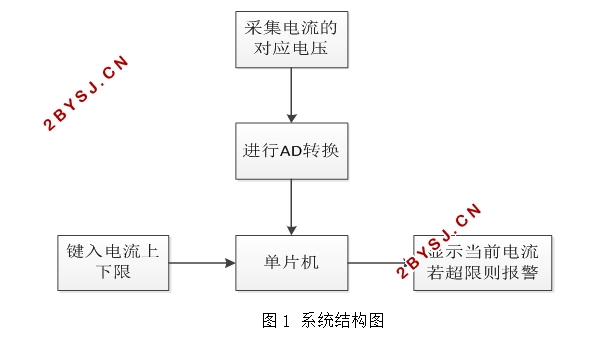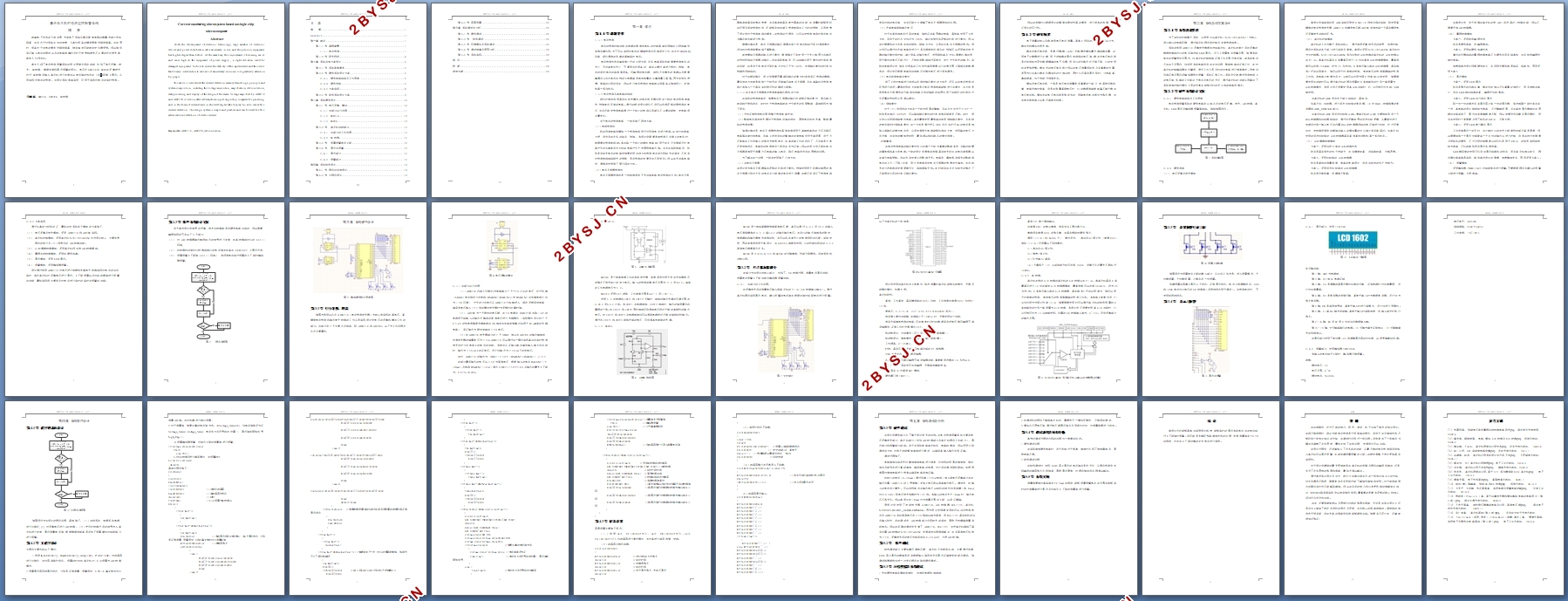基于单片机的电流监控报警系统设计
无需注册登录,支付后按照提示操作即可获取该资料.
基于单片机的电流监控报警系统设计(任务书,开题报告,外文翻译,论文10300字)
摘 要
随着电子技术的飞速发展,大型电子设备仪器及配电电缆的数量也随之水涨船高,并且出于对设备安全的考虑,人本对设备的精密程度也越来越高。与此同时,设备对于供电的要求也越来越高,稍有偏差可能就会使仪器受损。所以如何保证输入电流的稳定以及在电路故障时及时干涉挽救避免不必要的经济损失渐渐被人们所关注。
本文介绍了电流检测报警系统的设计原理及系统组成,包括了电压采集、放大、AD转换、数据处理和显示报警的设计。电压经AD8210与AD8274采集放大,经过AD转换后输入 单片机进行处理并以电流值的形式在LCD数码管上显示。从而实现对电流的检测。该设计系统简单实用,可用于实际对电流的实时检测。
关键词:AD8210、AD8274、AD转换
Current monitoring alarm system based on single chip microcomputer
Abstract
With the development of electronic technology, large number of electronic devices and power distribution cable are already in use, and the precision equipment has higher degree than before . At the same time, the requirement is becoming more and more high to the equipment of power supply , a slight deviation could be damaged equipment. So how to ensure the stability of the input current and the circuit fault timely intervention to save avoid unnecessary economic loss gradually attention by people.
This article is introduced the current detection alarm system design principle and system composition, including the voltage acquisition, amplification, AD conversion, data processing and display of the design of the alarm. Voltage amplified by AD8210 and AD8274 collection, after AD transform input single-chip computer for processing and in the form of current value in the LED digital tube display. So as to realize the current detection. The design system is simple and practical and can be used for the actual real-time detection of electric current.
Keywords: AD8210, AD8274, AD conversion


目 录
摘 要 I
Abstract II
第一章 绪论 1
第1.1节 课题背景 1
1.1.1电流检测 1
第1.2节 研究现状 4
第二章 系统总体方案设计 5
第2.1节 系统基本要求 5
第2.2节 硬件系统设计方案 5
2.2.1. 硬件电路组成及工作原理 5
2.2.2. 硬件选型 5
2.2.3方案实现 8
第2.3节 软件系统设计方案 9
第三章 系统硬件设计 10
第3.1节 电压采集、增益 10
3.1.1 该部分运行流程 11
3.1.2 AD8210 12
3.1.3 AD780 12
第3.2节 单片机功能部分 13
3.2.1 该部分的工作流程 13
3.2.2 AD转换: 15
第3.3节 设置报警电流上限 16
第3.4节 显示与报警 16
3.4.1 显示部分 17
3.4.2 报警部分 17
第四章 系统软件设计 19
第4.1节 程序的总体设计 19
第4.2节 主程序设计 19
第4.3节 屏显设置 23
第五章 系统调试与分析 25
第5.1节 硬件调试 25
第5.2节 软件调试 25
第5.3节 环境模拟及系统调试 25
第5.4节 调试故障及原因分析 26
第5.5节 系统实现 26
结 论 27
致 谢 28
参考文献 29
